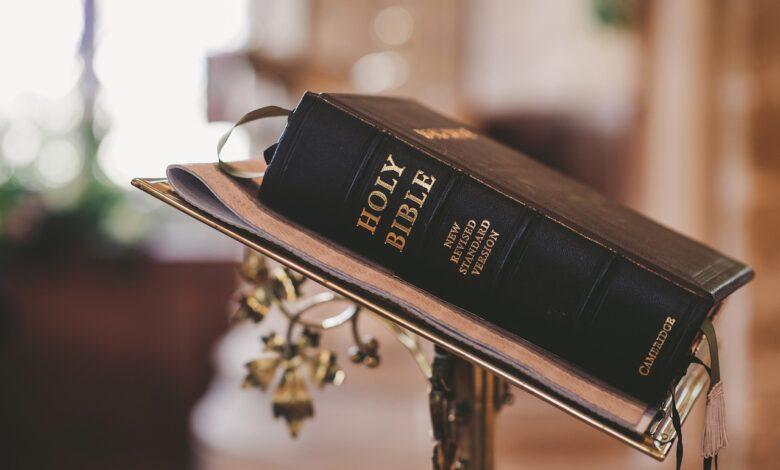Bible Dream Meaning and Interpretation

Dreams have always been a topic of fascination for humankind, especially when they are interwoven with something as sacred and profound as the Bible. The Bible Dream Meaning evokes a range of emotions and interpretations, from deep spiritual revelations to psychological underpinnings.
Have you ever had a dream where you saw vivid biblical scenarios or figures? It can be both awe-inspiring and perplexing. Understanding these dreams can shed light on our innermost thoughts and feelings, and even provide guidance in our waking lives.
Interpretations of Bible Dreams
Dreams with biblical themes can be both a source of wonder and curiosity. Interpreting these dreams might not always be straightforward, but with a bit of introspection, they can provide meaningful insights. Here are some perspectives to consider:
- Direct Messages from the Divine: For many, Bible dreams are seen as direct communications from a higher power.
- Guidance: These dreams might offer direction in times of uncertainty.
- Warnings: Sometimes, they might act as premonitions or signals to be cautious.
- Revelations: They can reveal truths or secrets, especially related to one’s spiritual journey.
- Reflections of the Subconscious: Often, Bible dreams are mirrors reflecting our deepest thoughts, fears, and desires.
- Personal Struggles: Dreaming of David and Goliath, for example, might be symbolic of an internal or external battle you’re facing.
- Moral Dilemmas: Dreams involving biblical commandments or teachings could indicate moral or ethical choices you’re grappling with.
- Spiritual Seeking: Dreams of searching for biblical artifacts or places can signify a quest for spiritual enlightenment or answers.
- Archetypal Symbols: These dreams might tap into universal symbols and shared human experiences.
- The Hero’s Journey: Dreaming of figures like Moses leading his people could signify your own journey and the leadership role you’re taking.
- Trials and Tribulations: Scenes of biblical hardships, like Job’s challenges, might parallel personal challenges you’re undergoing.
- Redemption and Forgiveness: Dreaming of moments like the Prodigal Son’s return might highlight themes of reconciliation in your life.
Each dream is unique, and while these interpretations offer a framework, the true meaning often lies in the personal resonance and emotions a dream evokes.
What is the Symbolism of the Bible?
The Bible, as an intricate tapestry of narratives, parables, and teachings, is laden with symbols that transcend time. Understanding the symbolism of the Bible in dreams can reveal profound insights about one’s life journey. Here’s a deeper dive into the symbolic tapestry of the Bible:
- Guidance and Wisdom: At its core, the Bible is a guidebook.
- Navigation: Dreaming of being handed a Bible or reading a specific passage might indicate seeking direction in life.
- Enlightenment: A radiant or illuminated Bible in dreams can represent moments of clarity or realization.
- Moral Compass: The Bible is a beacon for morality.
- Journey of Faith: The Bible narrates countless tales of faith.
- Life, Death, and Eternity: Fundamental themes of human existence are woven throughout the Bible.
In dreams, the Bible’s symbolism is not just a reflection of religious beliefs but is also deeply tied to our psyche, emotions, and life experiences. Recognizing these symbols can pave the way for a deeper connection to oneself and the divine.
Common and Typical Dreams of the Bible
The Bible’s vast and rich narratives often find their way into our dreamscapes. These dreams, while rooted in ancient tales, can resonate with our modern experiences and concerns. Here’s a more detailed look into some typical biblical dreams and their possible interpretations:
- Biblical Events and Miracles:
- Parting of the Red Sea: Dreaming of this miraculous event could signify obstacles being removed or a clear path appearing in one’s life.
- Feeding the Multitudes: Encountering this scene might reflect a feeling of abundance, or perhaps a calling to be generous or resourceful.
- Burning Bush: Witnessing this divine spectacle can suggest a burning passion, a significant calling, or a message you can’t ignore.
- Encounters with Biblical Figures:
- Moses: A symbol of leadership, guidance, and faith against adversity. Meeting him might suggest you’re taking or should take a leadership role.
- Mary: Often symbolizing purity, devotion, and maternal care. Dreaming of Mary could indicate inner peace, love, or maternal instincts.
- Judas: Represents betrayal. Encountering him can be a warning of deceit or feeling guilty about betraying someone’s trust.
- Biblical Places and Settings:
- Garden of Eden: Symbolic of paradise, innocence, or a lost idyllic past. Being here might reflect a desire to return to simpler times or feeling out of touch with one’s innocence.
- Tower of Babel: This could symbolize misunderstandings, conflicts, or ambitions. Building or seeing this tower might suggest you’re feeling scattered or misunderstood.
- Noah’s Ark: A refuge amidst chaos. Dreaming of the Ark could indicate seeking shelter from life’s storms or the need to save something valuable from being lost.
- Symbols and Artifacts:
- The Ten Commandments: Seeing or receiving them might signify a moral compass, rules to live by, or setting personal boundaries.
- Bread and Wine: Representing sustenance and sacrament. Consuming these could signify spiritual nourishment or communion with the divine.
- The Serpent: A symbol of temptation, cunning, or transformation. Encountering a serpent can suggest facing temptations, undergoing significant changes, or embracing newfound wisdom.
By understanding these typical biblical dreams, one can gain insight into personal challenges, desires, and the spiritual journey one is undertaking. Each dream, while tied to biblical narratives, remains deeply personal in its interpretation and resonance.
Bible-Related Dreams
While not directly depicting biblical events or figures, certain dreams draw their essence from the vast universe of biblical themes, symbols, and lessons. These dreams might be tangential but can carry a spiritual or emotional weight derived from their biblical connections. Here’s an exploration of such Bible-related dreams and their potential meanings:
- Biblical Elements in Modern Settings:
- Ancient Jerusalem in a Modern City: Seeing the sacred city amidst skyscrapers might represent a longing for spiritual grounding in the hustle of modern life.
- Biblical Fruit in a Supermarket: Encountering fruits like apples or figs could signify choices, temptations, or moral decisions in daily life.
- Abstract Concepts and Feelings:
- Feeling of Divine Presence: Experiencing an overwhelming feeling of being watched or guided could draw from biblical teachings of a higher power always being with us.
- Sense of Awe in Mundane Scenarios: Finding oneself filled with reverence or wonder in everyday situations might be an echo of biblical miracles and the awe they inspire.
- Symbols Aligned with Biblical Morality:
- Wells or Water Sources: Reminiscent of biblical tales like Jesus meeting the Samaritan woman at the well, dreaming of water sources can signify spiritual thirst, seeking truth, or purification.
- Lamps or Light: Echoing the biblical “lamp unto my feet” sentiment, these signify guidance, hope, and clarity amidst darkness.
- Echoes of Biblical Relationships:
- Protective Figures: Dreaming of guardian figures or angels watching over might be influenced by stories of guardian angels and God’s protection in the Bible.
- Dreaming of a Prodigal: Encountering stories similar to the Prodigal Son, such as returning after a long absence, could highlight themes of forgiveness, reconciliation, and familial bonds.
- Dreams of Rituals and Traditions:
- Baptism or Cleansing Rituals: These might symbolize a desire for renewal, starting afresh, or shedding past burdens.
- Feasts and Gatherings: Dreaming of large meals or communal gatherings can be reminiscent of Last Supper or biblical feasts, representing communion, gratitude, and celebration.
Such dreams, while not direct retellings of biblical tales, are imbued with the spirit and lessons of the Bible. They blend the sacred and the secular, reminding dreamers of the timeless wisdom and relevance of biblical teachings in contemporary contexts.
Psychological Perspectives
Bible dreams, from a psychological standpoint, can be seen as rich expressions of our unconscious mind, drawing from collective archetypes, personal experiences, and deep-seated beliefs. Let’s delve into what psychologists might say about these dreams:
- Carl Jung and Archetypes:
- Universal Symbols: Jung believed that religious symbols, including those from the Bible, are part of our collective unconscious. Encountering them might signify tapping into shared human experiences and lessons.
- Personal Individuation: Bible dreams might represent stages of one’s personal growth and the journey to become a whole individual.
- Freud and Subconscious Desires:
- Suppressed Emotions: Dreaming of biblical punishments or judgments might indicate suppressed guilt or internalized moral constraints.
- Desire for Authority: Dreams of biblical figures of power, like kings or prophets, might represent a desire for control or authority in one’s life.
- Existential Perspectives:
- Search for Meaning: Dreaming of biblical quests or pilgrimages might be symbolic of one’s search for life’s purpose.
- Confronting Mortality: Visions of biblical end times or resurrections can be a reflection of grappling with concepts of death and afterlife.
- Modern Cognitive Theories:
- Problem Solving: Biblical challenges or dilemmas in dreams might be the mind’s way of working through real-life issues.
- Memory Consolidation: Recurring Bible dreams could be the mind’s attempt to integrate significant life events with personal beliefs and values.
Bible in Culture & Mythology
The Bible, beyond its religious significance, has permeated global culture and influenced myriad mythologies. Here’s how biblical themes manifest in various cultural narratives:
- Literary References:
- Classic Literature: From Dante’s “Divine Comedy” to Milton’s “Paradise Lost,” biblical references shape world literature, influencing narratives of redemption, sacrifice, and divine encounters.
- Modern Fiction: Biblical themes are revamped in contemporary stories, offering new perspectives on age-old tales.
- Art and Iconography:
- Renaissance Art: Biblical figures and events have been central subjects, from Michelangelo’s Sistine Chapel to Da Vinci’s Last Supper.
- Pop Culture: Modern artworks and graphics often incorporate biblical symbols, creating a blend of the sacred and the profane.
- Music and Songs:
- Hymns and Spirituals: Songs trace narratives of hope, suffering, and divine communion, linking personal experiences with biblical stories.
- Contemporary Music: Artists from U2 to Leonard Cohen have infused their lyrics with biblical allegories, bridging spiritual longings with modern sensibilities.
- Mythological Parallels:
- Creation Myths: Biblical creation stories find echoes in cultures worldwide, from Native American legends to Norse mythology.
- Flood Narratives: The tale of Noah’s Ark is mirrored in diverse mythologies, including Mesopotamian and Greek traditions.
The Bible’s tendrils stretch far and wide, influencing and being influenced by a tapestry of cultural expressions. These intersections remind us of the universality of human experiences, beliefs, and stories.
Conclusion
Dreams can be mysterious, but when intertwined with the Bible, they open up a realm of rich interpretations and insights. Whether it’s a divine message, a reflection of our subconscious, or influenced by our cultural surroundings, understanding the Bible Dream Meaning can offer a deeper understanding of oneself and the world around us. So, the next time you dream of a biblical scene or symbol, ponder its significance. It might just have a message worth decoding.



